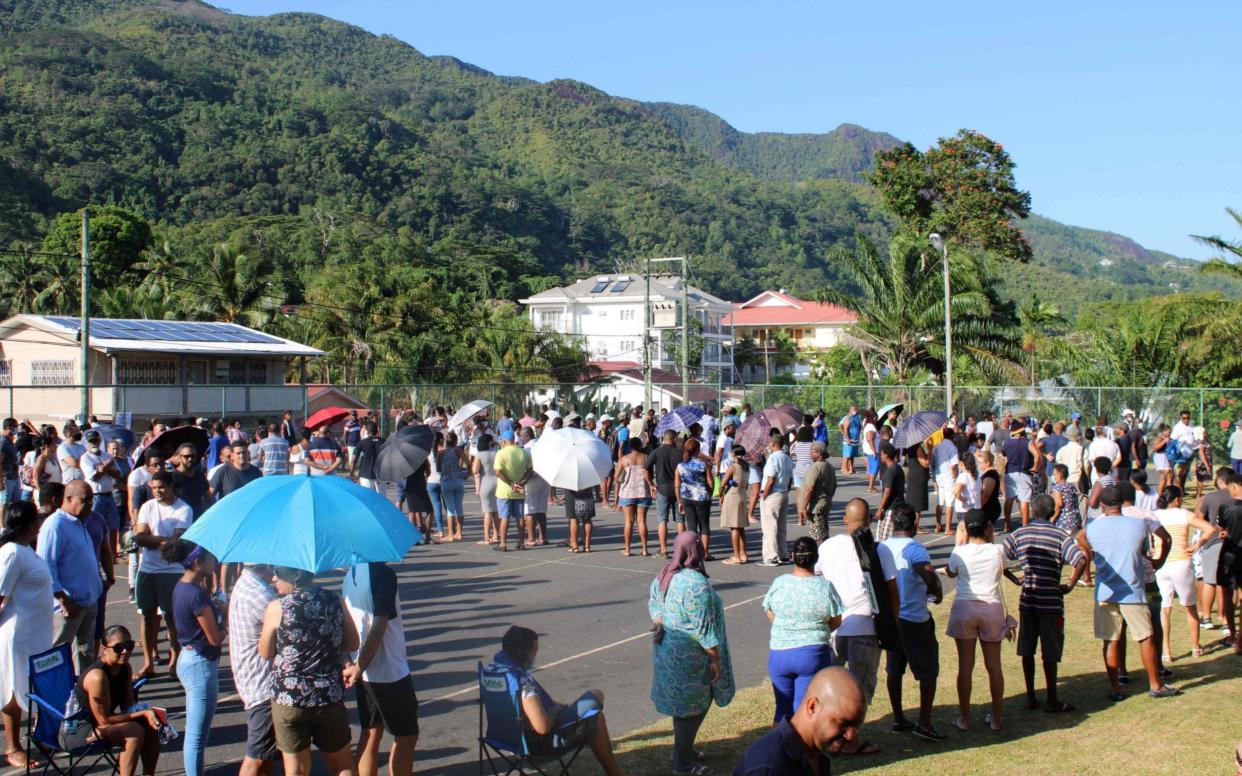India's naval base in the Seychelles hangs in the balance as polls open on strategic archipelago

The Seychelles looks set to rip up a deal to allow India to build a strategic naval base on its pristine archipelago as the islands vote in a knife-edge election under the nervous gaze of New Delhi and regional rival China.
The Reverend Wavel Ramkalawan, 58, an Anglican priest, is likely to seize power from the ruling party, which has been fostering close ties to India.
Mr Ramkalawan pledged there will be no deal with India over a proposed naval base in the archipelago. “Our islands are not for sale,” he told the Telegraph, “and our sovereignty is sacred.”
In 2015 India signed an agreement to build a naval facility on the island of Assumption, some 1,000 kilometres south of Seychelles’ main island Mahé.
The deal attracted widespread local opposition due to its proximity to Aldabra lagoon, the world’s second largest raised coral atoll and home to unique endemic species including dugongs, flightless rails and the world’s largest population of giant tortoises – ten times as many as inhabit Galapagos.

So far, the islands’ parliament has refused to ratify the deal, but it’s been feared that president Danny Faure could push it through if he wins again.
The Seychelles 115 islands are strung out over 1.4 million square kms of the southwest Indian Ocean and remain tactically important as one third of the world’s oil fleet traverses their EEZ. Geopolitical tensions between India and China have mounted in the region in recent years.
China and India have for many years vied for influence in Seychelles making significant development loans and grants of medical and infrastructural equipment to the tiny nation of 95,000 people.
Mr Ramkalawan's opposition party, narrowly defeated in a presidential election in 2015 and buoyed by a landmark victory in a parliamentary poll a year later, is hoping for its first presidential win in the 44 years since Seychelles gained independence from Britain.
If Ramkalawan ousts Faure it will be the first change of party in the presidential offices at State House since 1977 when Albert Rene seized power in a coup d’etat just one year after independence.

 Yahoo News
Yahoo News 
